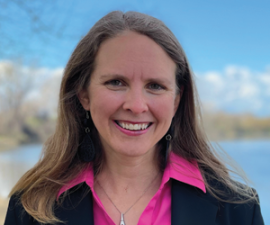

Research Expertise and Interest
hydroecology, geomorphology, complex systems, restoration ecology, environmental modeling, wetlands, sediment transport, environmental fluid mechanics
Research Description
Dr. Larsen’s work focuses primarily on how flowing water structures the form and function of landscapes, with emphases on the Florida Everglades, wet meadows across the US, and intermittent streams in coastal California. Larsen’s Environmental Systems Dynamics Laboratory takes a complex-systems approach to environmental problems, seeking to understand the set of interactions and feedbacks that produce emergent phenomena. The lab’s approach to problems integrates field work and numerical modeling to identify the most critical drivers of landscape-scale change and generate predictions about how landscapes will respond to climate change or changes in management.
In the News
Funding for big-data projects in ecology, astronomy & microscopy
Three professors at UC Berkeley will receive $1.5 million over the next five years from the Gordon and Betty Moore Foundation as part of the foundation’s Data-Driven Discovery Initiative. The initiative, one of the largest privately funded data scientist programs of its kind, is committed to enabling new types of scientific breakthroughs by supporting interdisciplinary, data-driven researchers.

